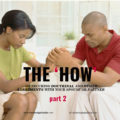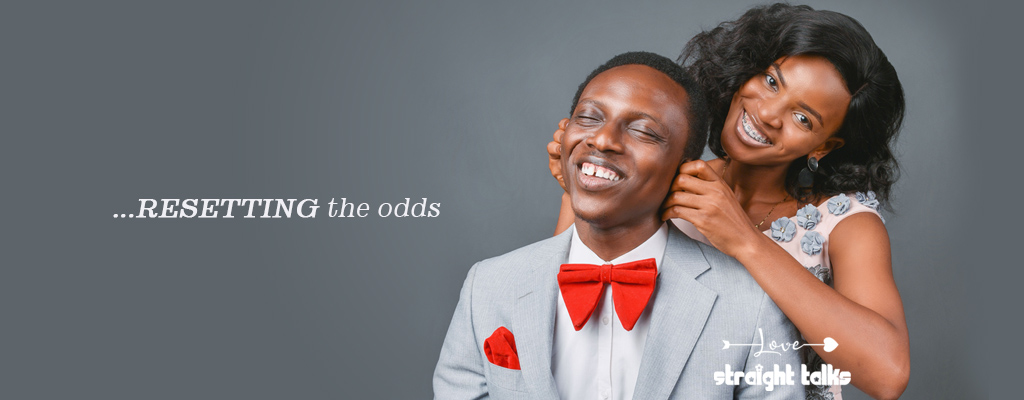A sister that I know once lost a relationship that could have otherwise been precious to her. At the point when she was having an accountability talk with a brother who was seriously considering marriage with her, she was no longer a virgin as a result of past sexual sinfulness.
When she made this disclosure, the brother was heartbroken but she was flippant about it. She later told me what scattered everything. “He wanted me to show remorse that I was no longer a virgin. I’m not in for that.”
I suspect that the brother was himself a virgin and wished to marry a virgin. Now that he wasn’t meeting a virgin and he considers waving that condition, he wishes that the lady could at least show that she feels sad that though he will be giving her his own virginity, she wouldn’t be giving him hers due to a careless and recklessly wayward life in the past (not as a result of rape or other non consensual penetrative coitus).
The flippant attitude of the sister in this case seemed to have sent a signal to the brother that she places no value on her virginity; something that he had jealously preserved for her.
The sister’s attitude can be a product of two factors. It could be as a result of the fact that she felt, “This was a long time ago. I have already settled the matter with God and He has forgiven me. Why do I need to show a fresh remorse about a matter that has been settled and forgiven?”
What she may have failed to realise is that though sexual sins are sins against God primarily because He’s our creator and owner, they are also sins against our future spouses. The perfect will of God is still that in marriage, two people who have had no previous experience with any other person unite their bodies in holy matrimony.
I Corinthians 7:4 makes the matter even clearer by establishing that the wife’s body belongs not just to her but also to the husband and the husband’s body belongs to his wife.
I’m sure some will say, “but that’s when they are already married. Before they are married, their bodies do not belong to each other.” But that will be the most ridiculous thought imaginable.
Does marriage give to anyone a new body? Is it not the same body you carried throughout your premarital years that will be carried into marriage? If God gave you that body fresh, innocent and healthy with the enjoyment of your future spouse in mind, and you had damaged it before marriage, isn’t that what your partner will still have to inherit?
The fact is that even while we were unmarried, our husbands and wives were already alive and God knew them. God knew that body we were messing around with belonged to them. Just that they hadn’t yet resumed possession of it. This is the reason why we can’t later meet them and tell them, “I’ve damaged your body, but and so what!”
The damage can be connected to a sexual past. It could even be connected to an unhealthy eating habit or sleeping habit; it could be connected to smoking or other indulgences that degrade the body. When you will be finally giving account to the co-owner of the body, how you say it will matter. Your attitude while rendering this account will say a lot.
Even where the two of them are not virgins, there ought to be a mutual remorse while rendering account to one another. That only goes to show their recognition of their mutual ownership of each other’s body even though possession of same will only occur after the wedding. In law, ownership and possession are two different things.
Such a sense of remorse, beyond the immediate healing capacity it possesses further goes to assure that there would be fidelity to one another throughout the future. The reason is, if you trivialise premarital unfaithfulness, you will likely trivialise post-marital unfaithfulness. That my partner sees how sad I am that I had not kept my body (her body too) for her before we met would likely assure her that I’m likely to keep it after we have met.
I have a vivid example of an accountability session in the story told by Joshua Harris (the author of, “I kissed Dating Goodbye.”) of himself and his wife, Shannon.
Even though Joshua had not had sex before up until this time, he admitted to have compromised his purity severally with the opposite sex. His wife Shannon on the other hand had only met Christ three years before their engagement. She had lost her virginity when she was 14 and had been sexually active with several men throughout high school and college before she finally came to the knowledge of Christ.
“Now, the moment she had dreaded was upon her. She had to look me in the eyes and speak the words she knew would pierce me…. Her eyes were filled with sadness the night she informed me that we needed to talk about what she described as “bad stuff.”
“I want you to know,” she began, “that if you decide you need to end our relationship after you hear what I have to say, I won’t hold it against you.”
“Shannon——”
“No, I mean that,” she said. A tear dripped off her nose. We were both quiet. The food arrived, but we hardly noticed….
Shannon’s tear-soaked napkin lay crumpled on the table in front of her. She opened her mouth to try again, but faltered and dropped her head. She just couldn’t get it out….”
When she finally told him, he assured her that it didn’t change his conviction about her. He also sought her forgiveness for compromising his purity with several women in the past.
Every session of accountability need not be as dramatic and teary as that of Joshua and Shannon but at least something is certain, where there had been a genuine repentance, there is always the evidence of a godly sorrow over sin that can still be present years after conversion. 2 Corinthians 7:9&10.
A flippant evaluation of past sinfulness can sometimes (not always – could also be as a result of overcoming its pain) be a pointer to a lack of genuine repentance. That can be a serious red flag for a discerning spiritual brother or sister who wishes to marry a truly converted child of God.
The question could then be asked: how long should wallowing in pain and regrets of the past be? So long as you have to talk about it? How then do you depict victory and total healing of the past? Is it not by getting to a point where you can speak about it so casually and unconnected to it’s damage or regret?
The fact is that healing does not happen overnight. For as long as your partner is healing, you will have to continue to show an attitude of regret over the past in order to support their healing process.
Shannon continued to deal with condemnation even after Joshua assured he had forgiven her. Over a period of time, she needed him to assure her again and again that he had forgiven her and that God had cleansed her. At the same time, Joshua needed to hear Shanon tell him that she loved him and that her past relationships were meaningless to her.
But this phase does not last forever. The sting lessens. Over time, the pain decreases till it’s hardly there especially as we both recognise that eventhough it’s essential we support each other through the process, our ultimate peace and final closure to the past comes as we look to God to assure our hearts and establish it with grace. At this point, we can freely talk about it without any attachment to it’s pain or regret.
But even if you’ve been healed before meeting your intending spouse, it’s important to still communicate with an attitude that portrays your value for what was lost especially if you had sensed that your partner is someone who had kept his or herself for you.
Let’s talk about the second factor next week.
Your brother,
Peniela Eniayo Akintujoye.
©Peniela Eniayo, Akintujoye| hello@lovestraighttalks.com
#resettingtheodds
#makingyourmarriageacenterofrevival
#lovestraighttalks







